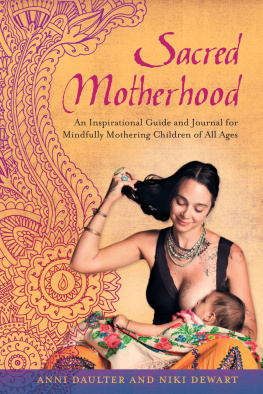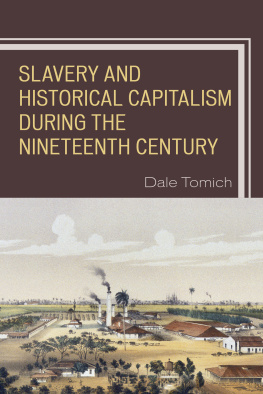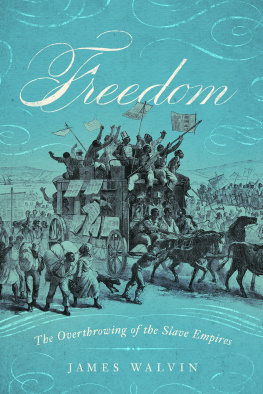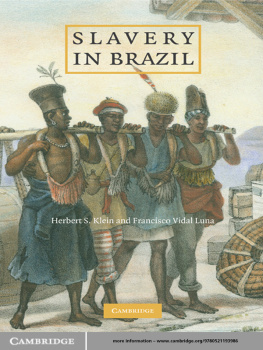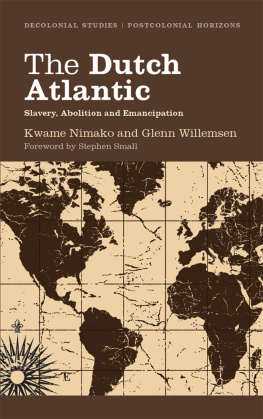Motherhood, Childlessness and the Care of Children in Atlantic Slave Societies
This book provides critical perspectives on the multiple forms of mothering that took place in Atlantic slave societies. Facing repeated child death, mothering was a site of trauma and grief for many, even as slaveholders romanticized enslaved womens work in caring for slaveholders children.
Examining a wide range of societies including medieval Spain, Brazil, and New England, and including the work of historians based in Brazil, Cuba, the United States, and Britain, this collection breaks new ground in demonstrating the importance of mothering for the perpetuation of slavery, and the complexity of the experience of motherhood in such circumstances.
This pathbreaking collection, on all aspects of the experience, politics, and representations of motherhood under Atlantic slavery, analyses societies across the Atlantic world, and will be of interest to those studying the history of slavery as well as those studying mothering throughout history.
This book comprises two special issues, originally published in Slavery & Abolition and Womens History Review.
Camillia Cowling is Associate Professor of Latin American History at the University of Warwick, UK.
Maria Helena Pereira Toledo Machado is Full Professor in the Department of History at the University of So Paulo, Brazil.
Diana Paton is William Robertson Professor of History at the University of Edinburgh, UK.
Emily West is Professor of History at the University of Reading, UK.
Routledge Studies in Slave and Post-Slave Societies and Cultures
Edited by Gad Heuman
Motherhood, Childlessness and the Care of Children in Atlantic Slave Societies
Edited by Camillia Cowling, Maria Helena Pereira Toledo Machado, Diana Paton and Emily West
Previous titles that have been published in the Routledge Studies in Slave and Post-Slave Societies and Cultures series include:
Representing the Body of the Slave
Edited by Jane Gardner and Thomas Wiedemann
Rethinking the African Diaspora
The Making of a Black Atlantic World in the Bight of Benin and Brazil
Edited by Edna G. Bay and Kristin Mann
After Slavery
Emancipation and its Discontents
Edited by Howard Temperley
From Slavery to Emancipation in the Atlantic World
Edited by Sylvia R. Frey and Betty Wood
Slavery and Colonial Rule in Africa
Edited by Martin A. Klein and Suzanne Miers
Routes to Slavery
Direction, Ethnicity and Mortality in the Transatlantic Slave Trade
Edited by David Eltis and David Richardson
Reconstructing the Black Past
Blacks in Britain 17801830
Norma Myers
Against the Odds
Free Blacks in the Slave Societies of the Americas
Edited by Jane G. Landers
Small Islands, Large Questions
Society, Culture and Resistance in the Post-Emancipation Caribbean
Edited by Karen Fog Olwig
Unfree Labour in the Development of the Atlantic World
Edited by Paul E. Lovejoy and Nicholas Rogers
Classical Slavery
Edited by Moses I. Finley
First published 2020
by Routledge
2 Park Square, Milton Park, Abingdon, Oxon, OX14 4RN
and by Routledge
52 Vanderbilt Avenue, New York, NY 10017
Routledge is an imprint of the Taylor & Francis Group, an informa business
Introduction, Chapters 1, 36, 8-21 2020 Taylor & Francis Chapter 2 2017 Diana Paton. Originally published as Open Access. Chapter 7 2018 Emily West and Erin Shearer. Originally published as Open Access.
With the exception of Chapters 2 and 7, no part of this book may be reprinted or reproduced or utilised in any form or by any electronic, mechanical, or other means, now known or hereafter invented, including photocopying and recording, or in any information storage or retrieval system, without permission in writing from the publishers. For details on the rights for Chapters 2 and 7, please see the chapters Open Access footnotes.
Trademark notice: Product or corporate names may be trademarks or registered trademarks, and are used only for identification and explanation without intent to infringe.
British Library Cataloguing in Publication Data
A catalogue record for this book is available from the British Library
ISBN 13: 978-0-367-20202-6
Typeset in Minion Pro
by RefineCatch Limited, Bungay, Suffolk
Publishers Note
The publisher accepts responsibility for any inconsistencies that may have arisen during the conversion of this book from journal articles to book chapters, namely the inclusion of journal terminology.
Disclaimer
Every effort has been made to contact copyright holders for their permission to reprint material in this book. The publishers would be grateful to hear from any copyright holder who is not here acknowledged and will undertake to rectify any errors or omissions in future editions of this book.
The following chapters were originally published in Slavery & Abolition, volume 38, issue 2 (June 2017). When citing this material, please use the original page numbering for each article, as follows:
The nameless and the forgotten: maternal grief, sacred protection, and the archive of slavery
Sasha Turner
Slavery & Abolition, volume 38, issue 2 (June 2017), pp. 232250
Maternal struggles and the politics of childlessness under pronatalist Caribbean slavery
Diana Paton
Slavery & Abolition, volume 38, issue 2 (June 2017), pp. 251268
Bad breeders and monstrosities: racializing childlessness and congenital disabilities in slavery and freedom
Jenifer L. Barclay
Slavery & Abolition, volume 38, issue 2 (June 2017), pp. 287302
The enslaved wet nurse as nanny: the transition from free to slave labor in childcare in Barcelona after the Black Death (1348)
Rebecca Lynn Winer
Slavery & Abolition, volume 38, issue 2 (June 2017), pp. 303319
Between two Beneditos: enslaved wet-nurses amid slaverys decline in southeast Brazil
Maria Helena Pereira Toledo Machado
Slavery & Abolition, volume 38, issue 2 (June 2017), pp. 320336
[S]he could...spare one ample breast for the profit of her owner: white mothers and enslaved wet nurses invisible labor in American slave markets
Stephanie Jones-Rogers
Slavery & Abolition, volume 38, issue 2 (June 2017), pp. 337355
By her unnatural and despicable conduct: motherhood and concubinage in the Watchman and Jamaica Free Press, 18301833
Meleisa Ono-George
Slavery & Abolition, volume 38, issue 2 (June 2017), pp. 356372
Conceived in violence: enslaved mothers and children born of rape in nineteenth-century Louisiana
Andrea Livesey
Slavery & Abolition, volume 38, issue 2 (June 2017), pp. 373391


